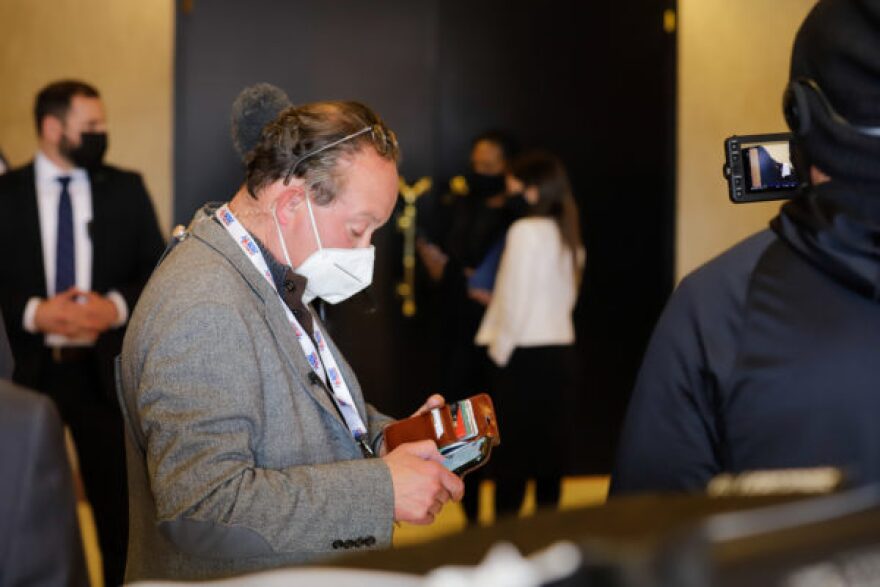At Anchorage’s Hotel Captain Cook, business proceeded mostly as usual Thursday afternoon, with a DoorDash delivery driver striding down the hall with a McDonald’s order, and a hotel guest sauntering the other direction in workout clothes.
But one giveaway that something was up were the men in dark suits clustered outside a closed ballroom, with reporters standing nearby holding microphones, cameras and notebooks.
“Something official and big was going down,” said the athletic hotel guest, who declined to give his name. “That was my impression.”
RELATED: US, China spar in first face-to-face meeting under Biden
That something was one of the world's biggest news stories this week: Top Biden administration officials holding their first in-person talks with senior Chinese diplomats. And the meeting quickly turned frosty as the two global superpowers sparred over human rights.
U.S. Secretary of State Antony Blinken began the talks by airing concerns about China’s cyber attacks, crackdowns on ethnic minorities and "economic coercion," according to a transcript released by his department.
One of China’s top diplomats responded with his own lecture about human rights in America, citing the Black Lives Matter movement.
From NPR : U.S., Chinese Officials Trade Swipes At Photo-Op
The talks made headlines around the world, and Alaska had a stake in the outcome, given its location on the Pacific Rim and its economic links to China through industries such as fishing, tourism and aviation.
But in the state's largest city, the event barely drew notice.
When President Barack Obama visited Anchorage in 2015, he stayed at the same hotel. The Secret Service erected a beefy security perimeter that included concrete roadblocks and sand-filled trucks.
None of that was present Thursday for Blinken and National Security Advisor Jake Sullivan. Both city and state officials told the Anchorage Daily News they’d received no communication from the Biden administration about the visit.
But there was still a robust international press corps, some of whom were relishing their opportunity to see Alaska in winter.
“We went up to have a look — we saw a glimmer of the northern lights,” said Nathan King, the White House correspondent for a television outlet called China Global News Network. The network is controlled by China’s Communist Party: Great Britain’s broadcasting regulator revoked its license last month.
The main event took place in the afternoon, not long after the U.S. delegation touched down at Anchorage’s Ted Stevens International Airport from a trip to meet with allies in Asia. One of the Washington, D.C.-based reporters traveling with Blinken later drew rebukes from Alaskans on Twitter for posting a photo from the tarmac in which she described the moderate spring day as “very, very cold.”

Like former President Trump, the Biden administration has been taking a tough tone on China. But it’s described its goals differently, based on competition as much as confrontation.
The meeting began with public opening statements from both sides, and quickly became tense, according to the transcript.
China’s diplomats questioned the Americans’ “tone” and said they were speaking in a “condescending way,” while Blinken cited a quote from Biden that “it’s never a good bet to bet against America.”
Then, the ballroom doors closed, and the talks continued in private.
While there were no Alaska reporters in sight, the meeting drew correspondents from Chinese news agencies, the BBC, the Wall Street Journal and the New York Times. They swarmed the Chinese delegation when the afternoon session of the meeting broke up, peppering diplomats with questions about COVID-19 and Taiwan.
The Chinese diplomats hopped into waiting SUVs that whisked them off down Fifth Avenue. The American delegation exited out of the ballroom from a back door, and avoided the clutch of reporters and photographers entirely.
The talks continue today.

